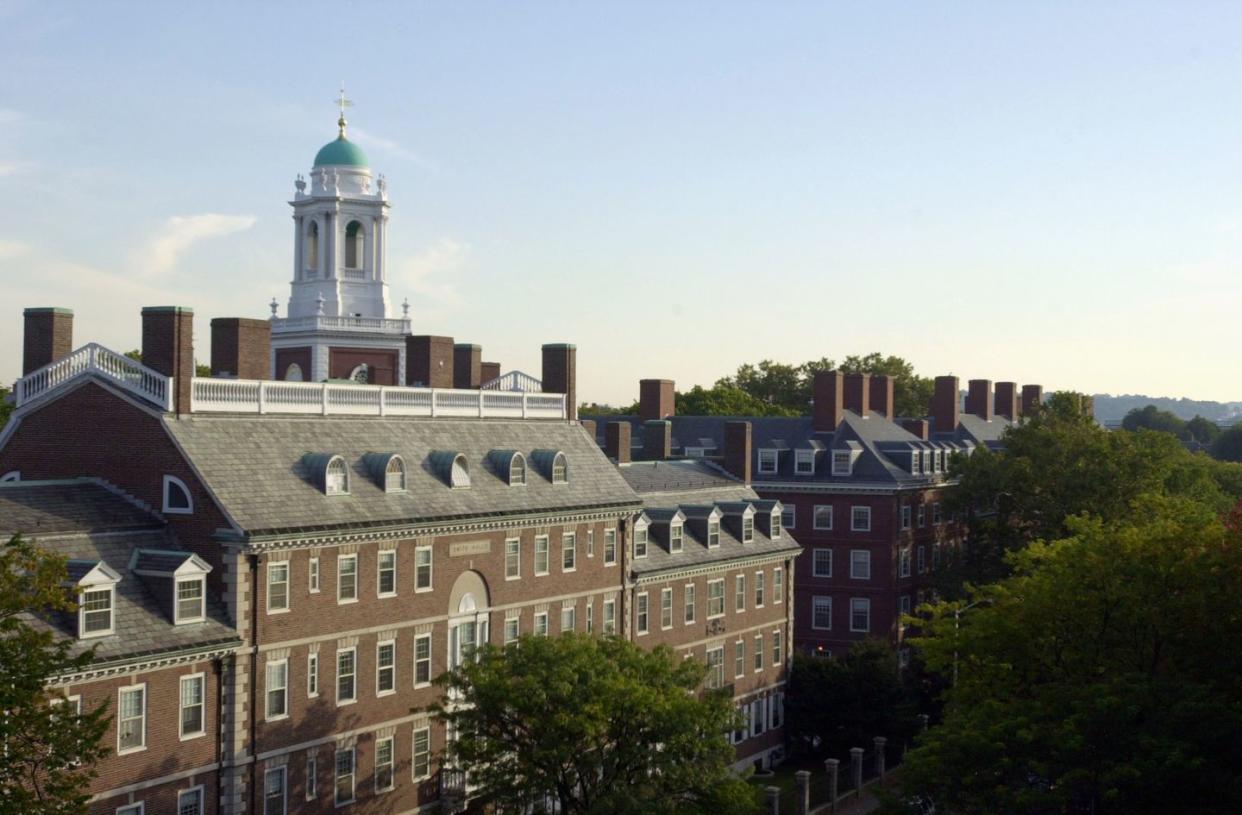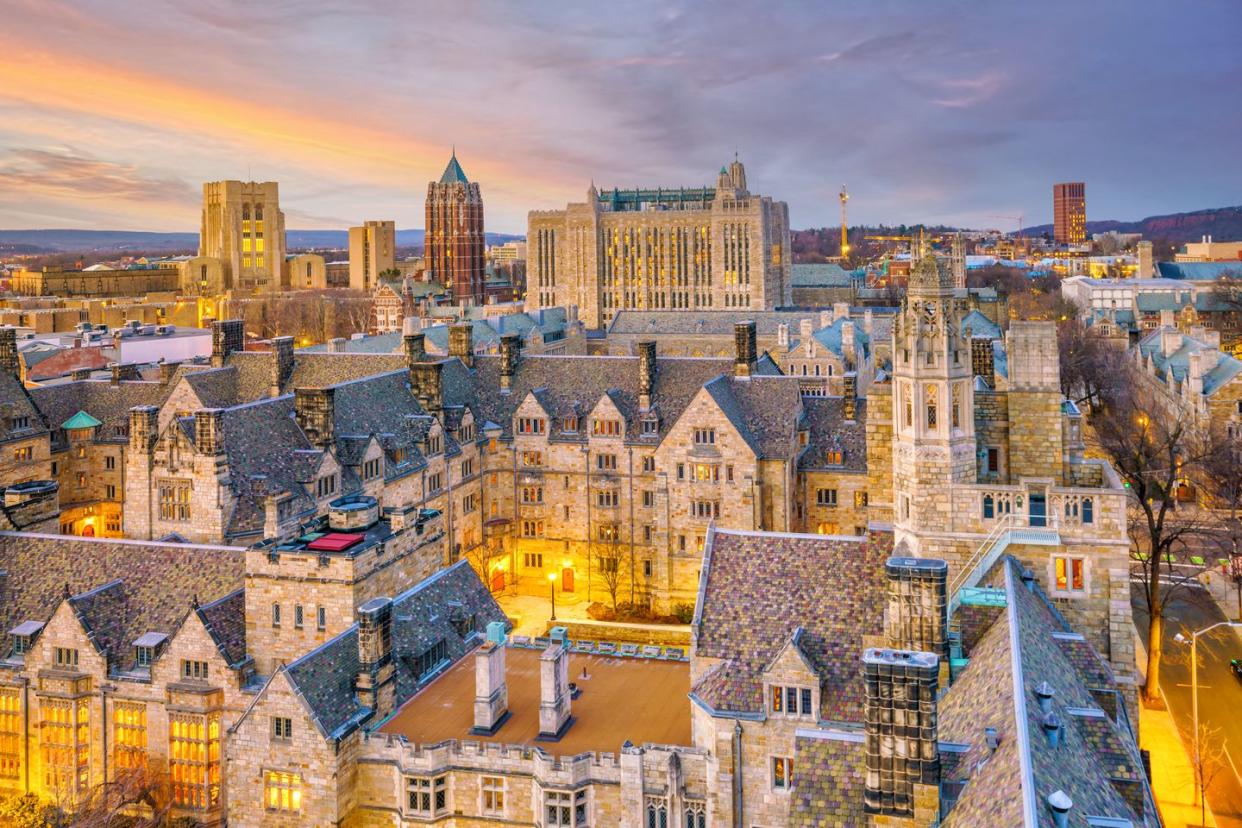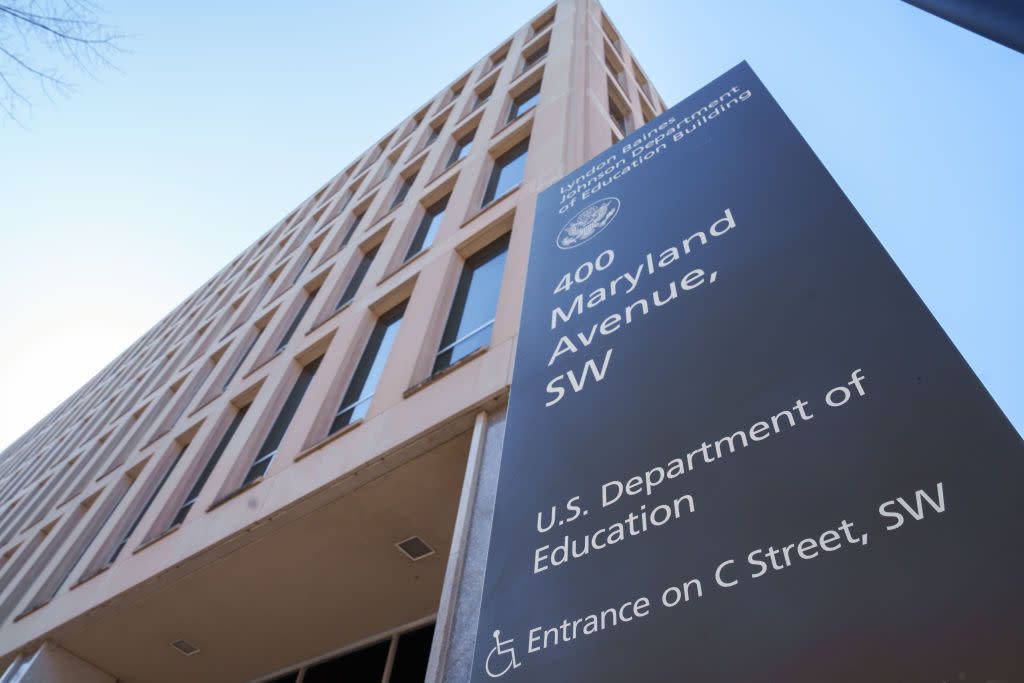Has College Admissions Returned to a Normal Level of Crazy?

"Hearst Magazines and Yahoo may earn commission or revenue on some items through these links."
As high school seniors await admission letters from colleges and universities to start arriving in late March, it’s hard not to try to read the tea leaves in terms of how this admission season will play out, especially given the massive changes that have altered the landscape. Most notably, last summer the Supreme Court banned affirmative action in college admissions, ostensibly doing away with the box where applicants historically checked off their ethnic background. And with processing delays with the new FAFSA financial aid form, many colleges have not yet received financial data from families, information that can impact admissions decisions.
All of this has already stressed-out students and families even more so, desperate for some—any—sign of what’s to come. At this point, the only data available to unpack is early decision results. And the upshot is?
“I’m not seeing anything that shocks me,” said Chris Teare, an independent college counselor based in Connecticut and Florida. “I think there’s a lot of uncertainty until this whole (season) plays out. Though uncertainty is no comfort to parents and students, who right now are sitting around trying to figure out what to do with their anxiety until regular decision results roll in.”

Sarah Langford, an independent college counselor in Chicago, said that of three students who applied to Brown early, one was rejected and two were deferred. The students were all white and well-resourced. But they aren’t “rich enough to be putting buildings on campus,” she said.
“They had great activities, great grades and scores, but they’re not what enrollment is calling ‘institutional priorities.’ They’re not rural or first-generation or ethnically diverse.”
Langford said that although the diversity box has been done away with, colleges are “getting around” that with their essay questions. “Northwestern is a great example. For decades,” she said, Northwestern required applicants to write an essay based on the prompt: Why Northwestern?
“This year they had three essay questions and none of them were, Why Northwestern? They were questions about community and background. Those words are like, bing, bing bing—tell us something that we can’t see with the box not being checked.
“I think colleges that still care about diversity found a way to learn about it that had nothing to do with checking a box.”
Langford has had some success stories so far, though. One student applied ED2 (which has a slightly later deadline that Early Decision) to Boston College and was accepted, and another got into Vanderbilt ED2.
Nat Smitobol, a master admissions counselor at IvyWise, agreed that the SCOTUS decision has so far not led to a major shift in acceptance letters for white and Asian students. He said that anecdotally he saw more of those students apply early decision, thinking, “‘Now we have a chance!’”
“But you end up competing against each other,” he said. “So it’s just as hard, if not harder, for those kids.”
Overall, however, he said he sees a loosening of the selectivity noose due to some prestigious schools taking a PR hit this year—including Harvard and Brown—over free speech issues related to the Hamas-Israel conflict, which led to less applicants to those schools. Brown received 6,244 early applicants this year, down from 6,770 applicants last year. However, this led to a higher ED acceptance rate, as colleges like to take a certain number of ED applicants to help their yield. Brown accepted 14 percent of applicants in the ED round compared to 12 percent for the 2022-2023 cycle.
Harvard, meanwhile, received 7,921 early action applicants this year, down from 9,553 last year. Similarly, its early acceptance rate rose to 8.7 percent from 7.5 percent last season.
Higher acceptance rates are also expected next year from Yale and Dartmouth, which recently reinstated standardized tests as requirements to apply. (Schools that switched to a test-optional policy after Covid saw their applicant pools swell as more students who didn’t necessarily have stellar test scores, applied.) Smitobol said he was relieved to see that shift and expects other schools to follow suit, resulting in a “normalization” of the admissions landscape. “Then we won’t have the facade of test-optional. It was never test-optional. In the data that’s available, most colleges have a much higher acceptance rate” for students who took the ACT or SAT.
“The bubble is bound to burst.”
That said, Smitobol said his ED students, who come from a variety of ethnic backgrounds, were admitted to schools such as Stanford, the U.S. Naval Academy, and the University of Virginia.

Another wrench thrown in this admissions season was technical glitches with the new FAFSA financial aid form, which was introduced last year. The new format, meant to be more streamlined and easy to fill out, was rife with processing delays, meaning that not all families’ data was sent to colleges on time. This means that many students will receive acceptance letters without financial aid offers, which will make it harder to evaluate choices. Colleges, meanwhile, will not have the full financial picture of all their applicants, which may affect their own decision-making.
College counselors are also reporting a number of deferrals this year. Part of this may be explained by the FAFSA mess—colleges are waiting to make a final decision until all of an applicant’s paperwork is filed. It may also be a function of the fact that early decision applicants tend to be from wealthier backgrounds. EDers often have hired independent college counselors who advise them to apply early because of the higher admit rates. And those who apply early don’t have the opportunity to compare offers from other colleges as they would in regular decision, reducing applicants to those who are more certain they can afford whatever is offered.

For colleges looking to draw up a more diverse class, it’s understood that the regular decision pool will have more of those applicants. Thus strong ED candidates may have been deferred so that admissions officers can compare them against a more varied pool.
Langford said that some students are relieved to be deferred, feeling that, “‘They’ll still consider me!’
But she noted, “If they’re not an institutional priority, they’re going to be competing with the kids who are, and who are also really, really bright. They have everything in terms of grades and scores, but they also might have the life story and life experience that the first round of ED kids didn’t have.”
“Looking at individual situations, I think the results are mixed” so far, said Teare. “I’ve been told by colleagues that some of their kids got clobbered in ED. But I had kids get into their first choices ED, schools that were reaches. He noted, though, that in at least one case, “they had nice, other pieces to their application that made it work. They were legacies at a place that still cares about legacy, and a family from means that’s been very generous.”
Teare said his main concern right now was the mental health of the students waiting for results. Parents, he said, should be prepared to give their kids a hug “for a yes,” and “more hugs for a no.’”
“I try to make them understand, you do everything you can to prepare as well as you possibly can, and you put yourself forward in the most authentic way. And then the results will be what they’re going to be. If it’s a yes, well, good for you. Keep working and stay out of trouble. And if it’s a no, somebody is gonna love you and you’re going to make the most of it.”
You Might Also Like
